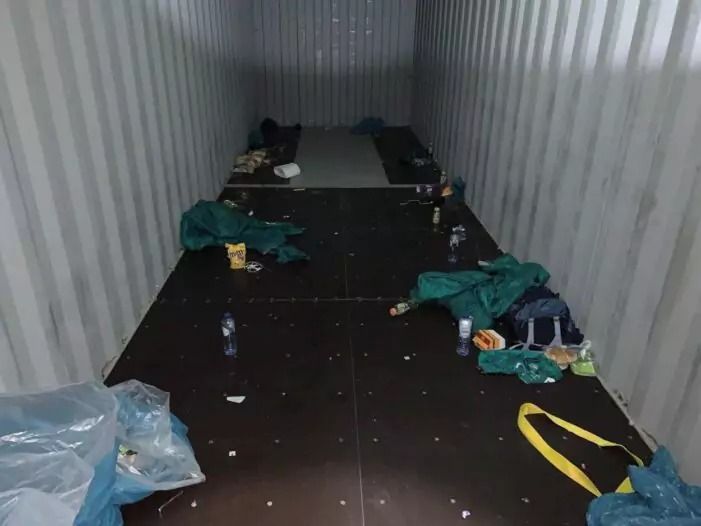
The "Hotel Container" Phenomenon
Last week, Dutch cops in the port city of Rotterdam made a big announcement: On two separate occasions this past May, they discovered suspected Albanian drug traffickers secretly living inside shipping containers, protecting tons of cocaine shipments crossing the Atlantic from the Dominican Republic.
Rotterdam, Europe’s biggest port, is a key point of entry for hundreds of metric tons of cocaine each year from South America. From there, traffickers move it across Europe, taking advantage of the lax border checks across 27 countries. Hundreds of metric tons are hidden in the hundreds of thousands of shipping containers that pass through the port each year to meet that demand.
From May 11 to May 29, authorities in Rotterdam intercepted 3,900 kilos of cocaine and 2,600 kilos of heroin. Last year, nearby Antwerp set a record with 90 metric tons seized, while Rotterdam caught around 60 metric tons. But experts in Belgium and The Netherlands suggest that both ports move about the same amount of cocaine and that only one-tenth of the total amount trafficked is intercepted.
Because Europe is now the world’s top cocaine market, cartels invest extraordinary resources in getting access to these containers. They serve as a seemingly unstoppable pipeline for massive amounts of drugs, concealing the stuff in the cargo or the very walls, floors, or doors, of the containers themselves.
As Dutch police discovered last month, several gangs in Rotterdam employ a unique method of ensuring that the shipment not only makes it across the Atlantic but that its easier to quietly unload once it gets to Holland: Plant a few guys inside a container alongside the drug shipment so they can bust the drugs out of port once they arrive at their destination.
Recently, I interviewed a cop-turned-port-security consultant. The consultant, who asked not to be named, said they first observed what investigators called the “Hotel Container” phenomena about a decade ago. Back then, he said, the Albanians developed it to get cocaine out of the containers and through port security – the final phase of its journey when it arrived in Europe.
“About ten years ago, this Albanian gang working in Antwerp realized that you can put two or three thugs in a container on the same ship as the huge load of cocaine,” the consultant told me. “They get paid to shit in a bucket, eat cans of tuna and watch videos on their Ipads for a week or two. Then when it arrives in Antwerp or Rotterdam, they wait until it’s late, break out of their container … and extract the load from another nearby container. Sometimes they need to use heavy tools. Sometimes the drugs are just sitting there.”
And then? “Over the fence they go,” the consultant said. “We find a few a month but rarely have any idea how much cocaine they moved. It’s cheap enough” – about 10,000 euros. “So cost wise it could be any size of [cocaine load] cause that's pretty cheap [labor].”
In May, the cops discovered a hotel container in Rotterdam – public statements about drug shipments are often delayed because the shipments in question are the subject of ongoing investigations – that appeared to be part of a complex smuggling operation on a ship just in from the Dominican Republic.
On May 12, port security guards detained a man snooping around a restricted area of the port after observing him gathering more than 100kg of cocaine from two containers. Based on information from his arrest, port security a few hours later found two additional men, also identified as Albanian nationals, as well as the container the three men shared on the ride from the Dominican Republic.
When arrested, Dutch cops said the second team had been using chainsaws to cut through wood shipments that had been stuffed with cocaine. It’s unclear if the consignment of chainsaws located next to the hidden cocaine was intentional planning or just good luck.
The hotel container scheme is just one trick the traffickers use to exploit a global supply chain to move their product. This is a big part of what Gateway will explore: how these gangs use existing, legitimate systems to move their drugs ashore, through Europe, and beyond.
Tips? Thoughts? Please get in touch with me here: thegatewayxxx@protonmail.me (DM me for my Signal number).

